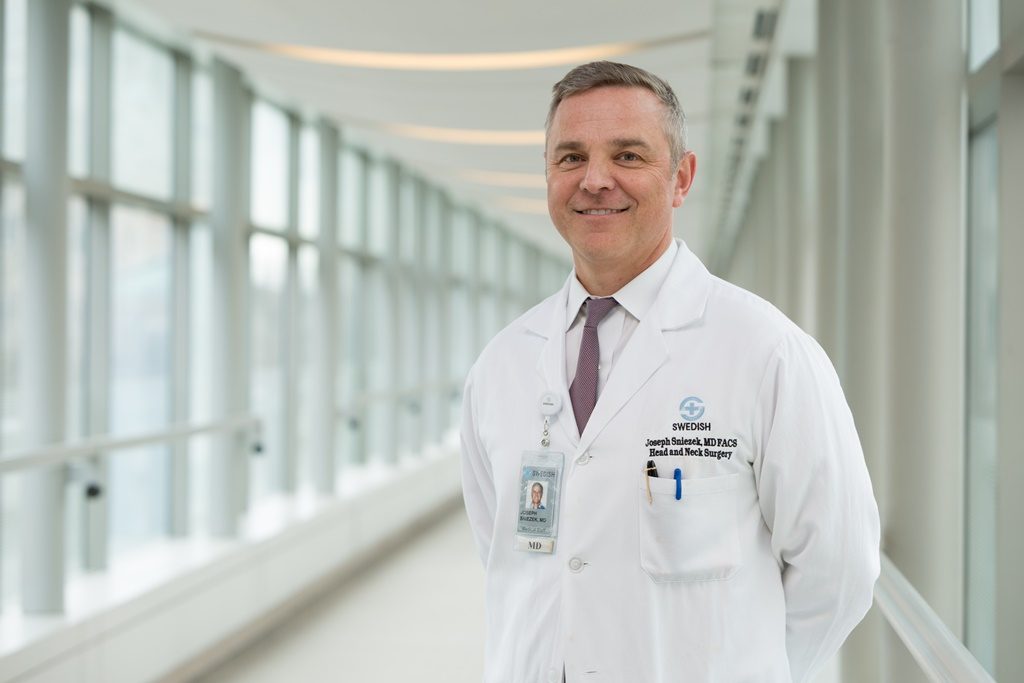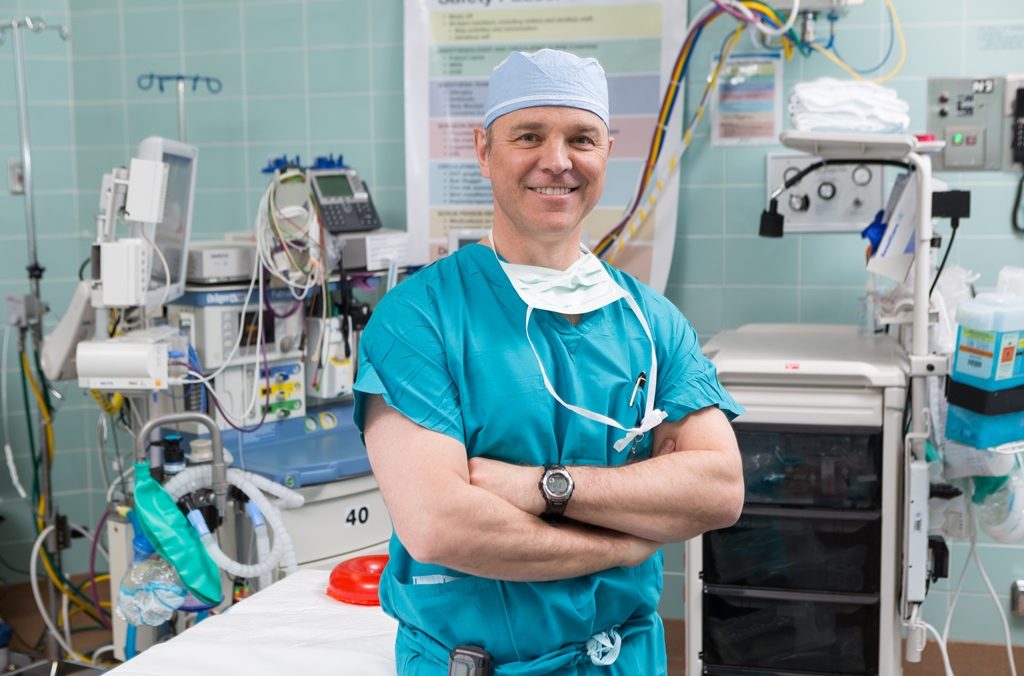The Business of Healing
Joe Sniezek, MD/MBA, serves as a model of the modern physician-leader
 It’s not the first time Joe Sniezek (MBA 2016) has heard the question. What was a successful, dedicated head and neck surgeon doing in a place like the Foster School of Business?
It’s not the first time Joe Sniezek (MBA 2016) has heard the question. What was a successful, dedicated head and neck surgeon doing in a place like the Foster School of Business?
The answer is simple. Healthcare, for him, was becoming more than medical. He had begun rising to leadership roles of progressive responsibility long before he became medical director of head and neck endocrine surgery at Swedish Medical Center in 2014.
“Why did I get a Foster MBA? I found myself feeling anxiety in meetings with administrators and business professionals and not understanding fully what they were talking about,” Sniezek says. “My goal was just to learn the language of business. But I didn’t know what I didn’t know. I learned so much more.”
Rapid rise
Sniezek wanted to be a doctor as long as he can remember. He grew up in Tennessee, graduated in the top two percent of his class at West Point, and earned his MD at Vanderbilt Medical School. From his first day in a gross anatomy class, he was sold on surgery. It was immediate, tactile. Healthcare in action.
“The logic and order of surgery appealed to me,” he says. “You define the problem, come up with a solution, execute your solution and see the outcome immediately.”
After his surgical residency, Sniezek took his practice in head and neck cancer surgery to Tripler Army Medical Center in Hawaii, where he served the bulk of his active duty commitment (and where he learned to surf, as one would).
A few years after his arrival, Sniezek was directing the residency program. “I was pretty young to be given that responsibility,” he says. “But the military tends to give you more opportunities to lead earlier than you get in the civilian world.”
Six years later, Sniezek was named chief of Tripler’s Department of Otolaryngology (ear, nose and throat surgery), and finally consultant to the Surgeon General of the Army.
Army outreach
Beyond his leadership at Tripler and throughout the Army, Sniezek led humanitarian surgical missions throughout the Asia Pacific, supporting the State Department’s diplomatic efforts by serving patients and training local physicians through “Sight, Sound and Smile” pop-up clinics.
 He also served an unforgettable seven-month deployment to Bagram Air Base in Afghanistan, directing the Joint Combat Casualty Care Research Program which continues the military’s long tradition of turning war-time trauma into medical advancements. During his time in Afghanistan and Iraq, the team discovered a breakthrough in the treatment of bleeding wounds, learning that IV fluids actually impede the body’s natural measures of self-protection.
He also served an unforgettable seven-month deployment to Bagram Air Base in Afghanistan, directing the Joint Combat Casualty Care Research Program which continues the military’s long tradition of turning war-time trauma into medical advancements. During his time in Afghanistan and Iraq, the team discovered a breakthrough in the treatment of bleeding wounds, learning that IV fluids actually impede the body’s natural measures of self-protection.
But the experience was more emotional than cerebral for Sniezek. “It was such a pure opportunity to provide healthcare with no distractions,” he says. “To see the humanity, humor, dedication and camaraderie among the deployed physicians—it’s incredibly uplifting to see the human spirit work like that. I’ve never been happier or prouder to be a physician than I was when I was deployed.”
Expanding impact
After retiring from active duty at the rank of colonel, Sniezek jumped at the opportunity to join the Swedish Cancer Institute—especially when it came with a chance to study in the Foster School’s Executive MBA Program.
Sniezek says the degree opened immediate doors. Upon graduation, he was asked to join the Operative Executive Committee at Swedish. “I love medicine and my goal is to continue practicing high-quality surgery,” he says. “But with the MBA, I feel empowered to affect healthcare around me, too.”
He believes this will be a critical factor in the brave new world of medicine, where quality of care must be balanced with cost containment.
“It’s the challenge of our time,” he adds. “And that’s why more doctors need to be trained in business. We were taught in medical school to avoid letting financial issues cloud our medical decision-making. But now we have to address both sides of the equation, and there is no one better positioned than physicians to do it right.”
